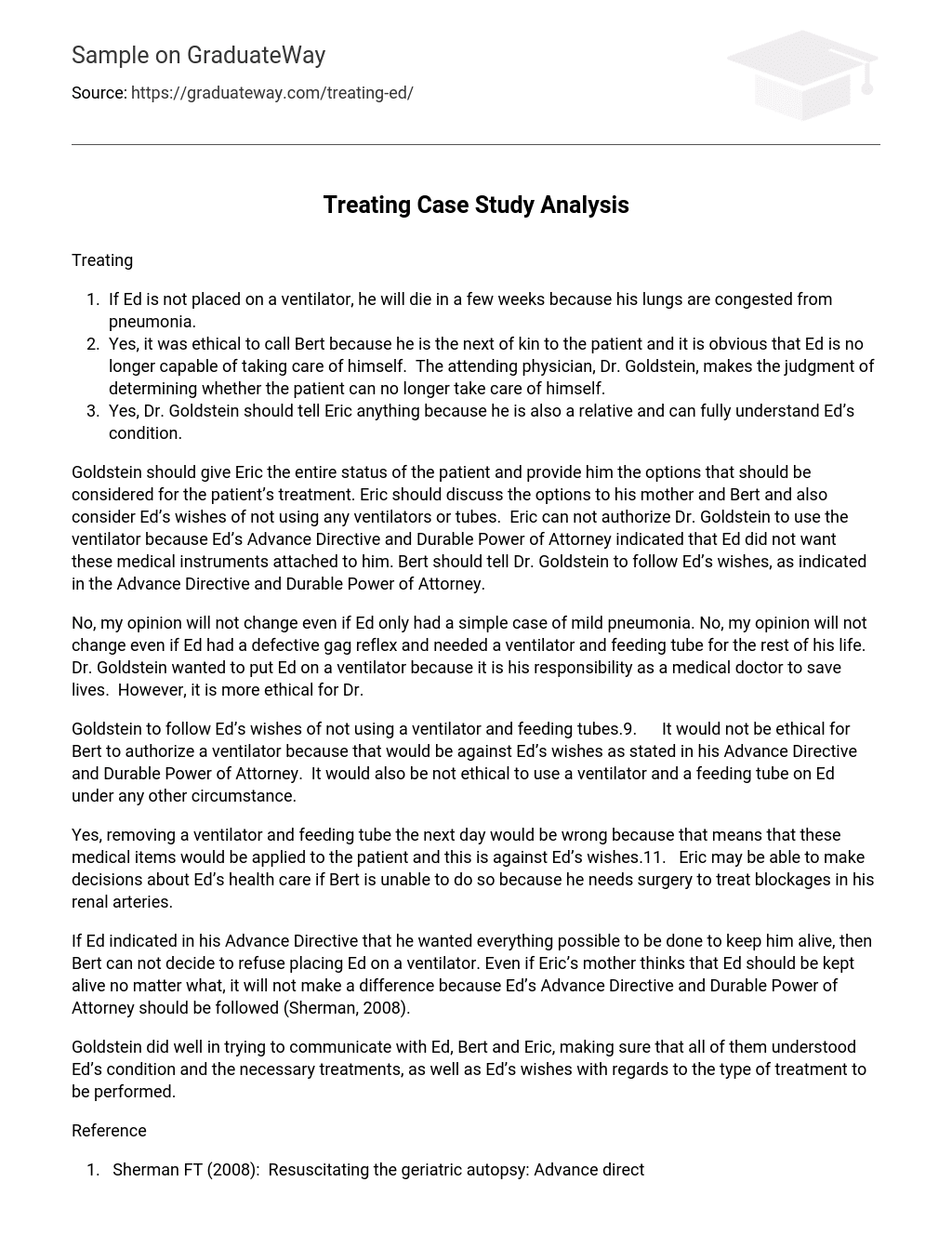Treating
- If Ed is not placed on a ventilator, he will die in a few weeks because his lungs are congested from pneumonia.
- Yes, it was ethical to call Bert because he is the next of kin to the patient and it is obvious that Ed is no longer capable of taking care of himself. The attending physician, Dr. Goldstein, makes the judgment of determining whether the patient can no longer take care of himself.
- Yes, Dr. Goldstein should tell Eric anything because he is also a relative and can fully understand Ed’s condition.
Goldstein should give Eric the entire status of the patient and provide him the options that should be considered for the patient’s treatment. Eric should discuss the options to his mother and Bert and also consider Ed’s wishes of not using any ventilators or tubes. Eric can not authorize Dr. Goldstein to use the ventilator because Ed’s Advance Directive and Durable Power of Attorney indicated that Ed did not want these medical instruments attached to him. Bert should tell Dr. Goldstein to follow Ed’s wishes, as indicated in the Advance Directive and Durable Power of Attorney.
No, my opinion will not change even if Ed only had a simple case of mild pneumonia. No, my opinion will not change even if Ed had a defective gag reflex and needed a ventilator and feeding tube for the rest of his life. Dr. Goldstein wanted to put Ed on a ventilator because it is his responsibility as a medical doctor to save lives. However, it is more ethical for Dr.
Goldstein to follow Ed’s wishes of not using a ventilator and feeding tubes.9. It would not be ethical for Bert to authorize a ventilator because that would be against Ed’s wishes as stated in his Advance Directive and Durable Power of Attorney. It would also be not ethical to use a ventilator and a feeding tube on Ed under any other circumstance.
Yes, removing a ventilator and feeding tube the next day would be wrong because that means that these medical items would be applied to the patient and this is against Ed’s wishes.11. Eric may be able to make decisions about Ed’s health care if Bert is unable to do so because he needs surgery to treat blockages in his renal arteries.
If Ed indicated in his Advance Directive that he wanted everything possible to be done to keep him alive, then Bert can not decide to refuse placing Ed on a ventilator. Even if Eric’s mother thinks that Ed should be kept alive no matter what, it will not make a difference because Ed’s Advance Directive and Durable Power of Attorney should be followed (Sherman, 2008).
Goldstein did well in trying to communicate with Ed, Bert and Eric, making sure that all of them understood Ed’s condition and the necessary treatments, as well as Ed’s wishes with regards to the type of treatment to be performed.
Reference
- Sherman FT (2008): Resuscitating the geriatric autopsy: Advance directives may be the answer. Geriatrics. 63(12):5.





